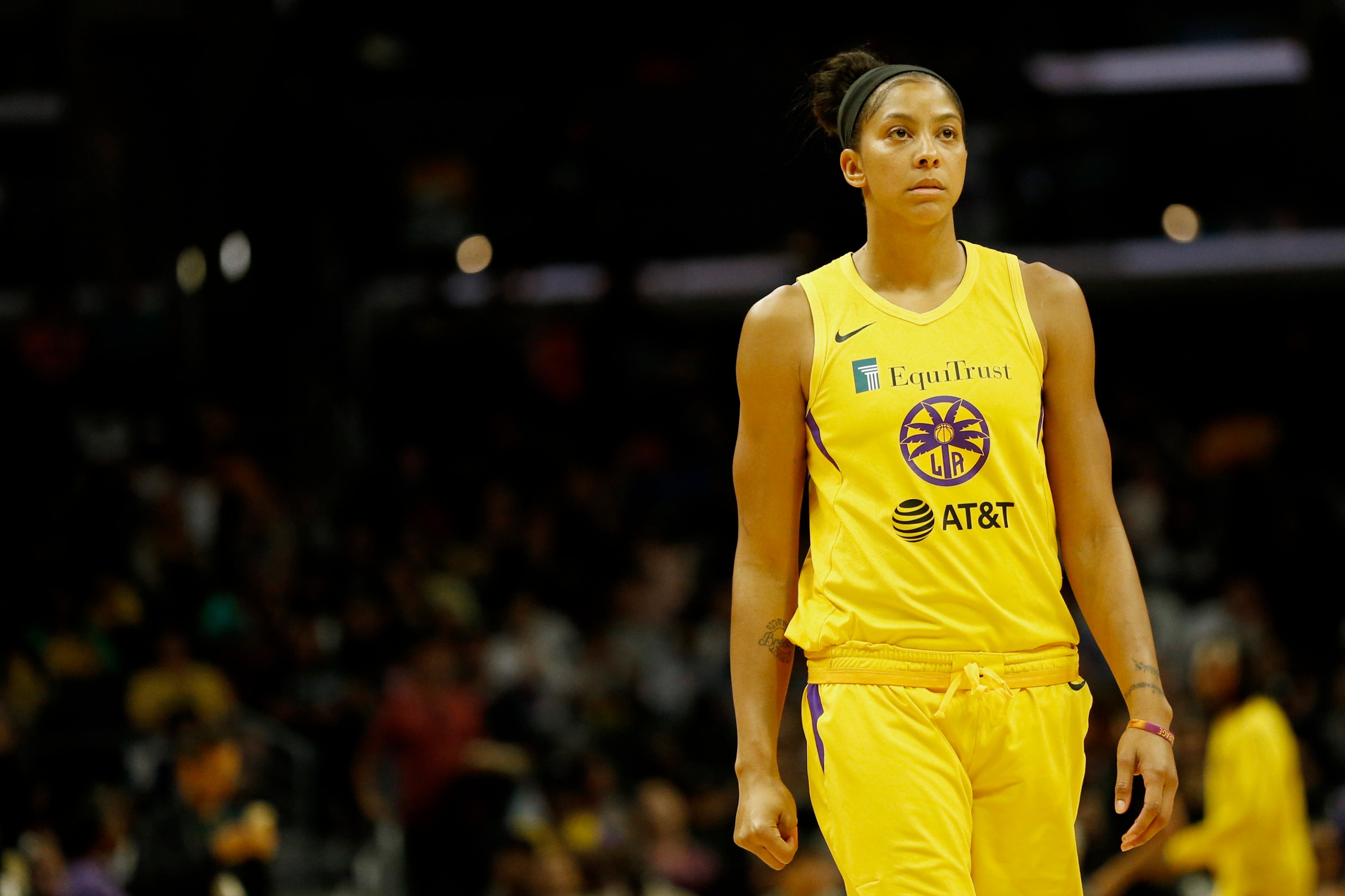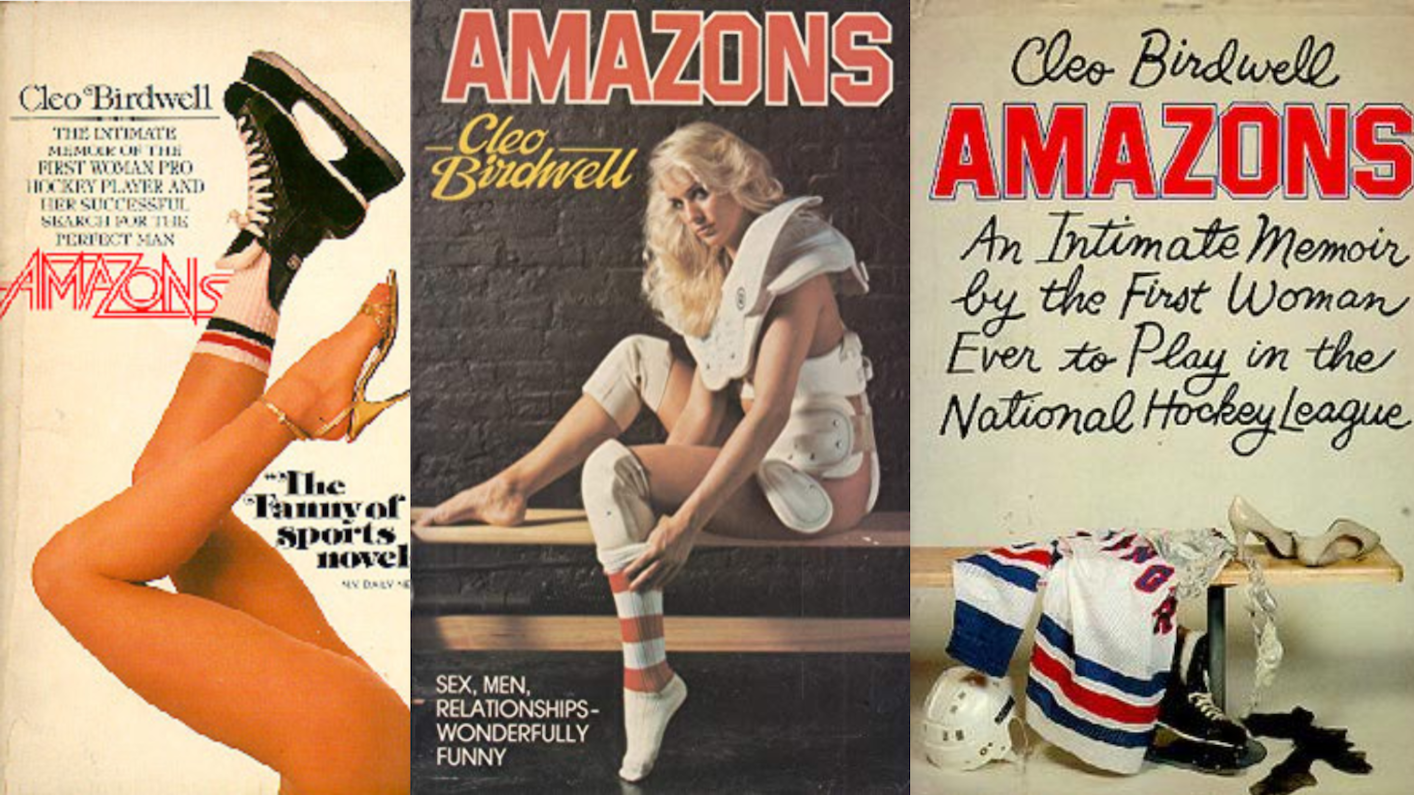In Los Angeles, there was an empire, and Lisa Leslie built it. The first cream-and-orange WNBA ball went up in 1997, on a June afternoon at the Forum, and the willowy 6-foot-5 center tipped it off to inaugurate the league and franchise she would tower over for a decade. Lisa Leslie was the Los Angeles Sparks, and a team couldn't ask for a better synonym. Everything about her stunned: her face and its striking angles; the poise with which she carried herself; all that she did on the court, because she really did do it all. The versatile big, the back-to-back champion and Finals MVP, the woman who could dunk, the rebounding queen, the All-WNBAer even in her final seasons. How on earth does anyone follow that? Or build on it? Or assure fans, with a straight face, that what comes next won't be an enormous letdown?
They drafted Candace Parker. She arrived in L.A. just as Leslie was getting ready to leave, already steeped in her own mythology. Parker was The Next Big Thing, a high school dunk contest champion, one of Pat Summitt's girls, a stone-cold positionless threat who had dislocated her shoulder twice in one tournament and played through it to win her second college championship. You don't get much luckier than a readymade star. In 13 seasons, she reinvented the women's game on pro women's basketball's biggest stage and kept the Sparks' floor at playoff perennial, eventually ending their 14-year championship drought.
And now, she's leaving. The Next's Nick Niendorf and ESPN's Ramona Shelburne reported Wednesday afternoon that Parker will sign with her hometown Chicago Sky when the WNBA's free agency period begins next week. For Los Angeles, and for basketball, it's the end of an era.
Playing in a glitzy market requires some performance under a magnifying glass, and for Parker, the pressures were only, well, magnified, by the expectations set for her. She was the "transcendent player" (read: Lady Sisyphus) the WNBA higher-ups hoped might single-handedly launch the league into the big-time. Like Chamique Holdsclaw before her, or Sabrina Ionescu after her, Parker was anointed well before her first game. It becomes difficult after a while to decouple the stardom from the cloudy artifice of marketing. I imagine that's why, when The Athletic surveyed WNBA players on the state of the league two years ago, the players named Parker its "most overrated player."
Of course, one quick backward glance at her career in L.A. renders that the most ridiculous thing ever said. My god, Parker's 2008 rookie season was nuts. In her debut game alone—34 points, 12 rebounds and eight assists against the Phoenix Mercury—she made a frightening first impression. She won MVP in that first year, and somehow did it playing alongside Leslie, still good for 15 points and nine rebounds a game in her penultimate season. Parker immediately reshaped the league—or forced its imagination to grow—as a 6-foot-4 [insert position here] who could dominate the defensive glass but handle the ball well enough to run the whole offense. Michael Cooper, the Sparks' coach at the time, imagined Parker the Magic to Leslie's Kareem. Leslie thought Tim Duncan and David Robinson the more accurate comparison, but where's the brand synergy in that?
Eventually, the team became Parker's. Injuries have sidelined her too often and for inconvenient amounts of time, but the Sparks have always felt like hers. Partly for that reason, it came as a kind of relief when they won the 2016 Finals at full-strength—the best, hardest-fought WNBA Finals ever, a triumphant and resume-completing response to silly whispers about the limits of Parker's talents. The WNBA isn't entirely immune to ringzzzz culture fixations, and just one may not cut it in a league using Sue Bird for a measuring stick, but Parker's lone ring might be worth two. Just watch those dazzling finishes.
No. 1 pick, Rookie of the Year, 2x MVP... and finally, a champion.#FlashbackFriday to @Candace_Parker's #WNBAFinals 2016 MVP performance! pic.twitter.com/QnpYzbxoqb
— WNBA (@WNBA) September 22, 2017
Leslie stayed a Spark until retirement, and bowed out after "Lisa's Legacy Night" at the Staples Center, a great big L.A. goodbye with flowers and speeches from the WNBA commissioner and Magic Johnson. Parker could have finished her career with the Sparks that way, too, if she'd wanted to. So that raises the question: Why didn't she?
Labor is one possibility; the new collective bargaining agreement facilitates player movement to a degree unheard of in Leslie's day. It could also have something to do with the way the Sparks' 2019 season ended, or specifically, where Parker was when it ended; that is, on the bench, chewing out her coach, Derek Fisher, for pulling her from a winnable elimination game with over a quarter left to play.
Neither explanation totally holds up on its own. The Sky are an attractive landing spot, but not so attractive they'd pull someone away from an otherwise good situation. And Parker seemed to have mostly patched things over with Fisher last season before he got the additional job of general manager this offseason. That Parker's fellow Sparks veteran Chelsea Gray is also leaving in free agency might suggest some deeper culture issue or distrust. Parker's TNT colleague Dwyane Wade tweeted that Parker's departure was "what when they don’t appreciate your worth looks like."
WNBA Playoff coverage by @Rachel__Nichols on The Jump today talking about the benching of Candace Parker featuring @TheWinsidr @johnwdavis’s interview with her. pic.twitter.com/j85Xzr7Itf
— Rachel Galligan (@RachGall) September 23, 2019
Nor are there satisfying answers from the Sparks in this bit of reporting from Aryeh Schwartz of Winsidr on the "mindset" of the franchise, which is: Parker and Gray "helped LA win [a] title in 2016 and have cemented themselves as organizational legends" but the Sparks were "excited to build a fresh culture around" Nneka Ogwumike, Brittney Sykes, Kristi Toliver, Te'a Cooper and Chiney Ogwumike. Having just taken my credulity pills, I bet they're very excited to lose their best, most beloved players and to build freshly around 34-year-old Kristi Toliver and 30-year-old Nneka Ogwumike, whom they stuck with a franchise tag to keep from leaving. That seems all in order.
Anyway, Chicago. Chicago will be fun. Parker is exactly what the Sky needed: a superstar with legit playoff experience and, most importantly, the faintest interest in playing defense. Unlike the Sparks, the Sky's last two postseason flameouts seemed like flukes rather than evidence of organizational dysfunction, so they might just be what she needs, too.
Parker still Had It as late as last year, when she was named Defensive Player of the Year and unanimously voted to the All-WNBA first team. This could be her final act—“I know I have way more basketball behind me than in front of me," she told The Ringer in 2019—but she wouldn't be Lisa Leslie's protégé if she didn't achieve all the way to the finish. As for the Sky's title chances, Defector dot com expressly disclaims all liability for losses or damages incurred betting against Seattle and Breanna Stewart. Still, that doesn't mean you can't cheer for Candace Parker to shut everyone up, do everything, and win it all, again.






